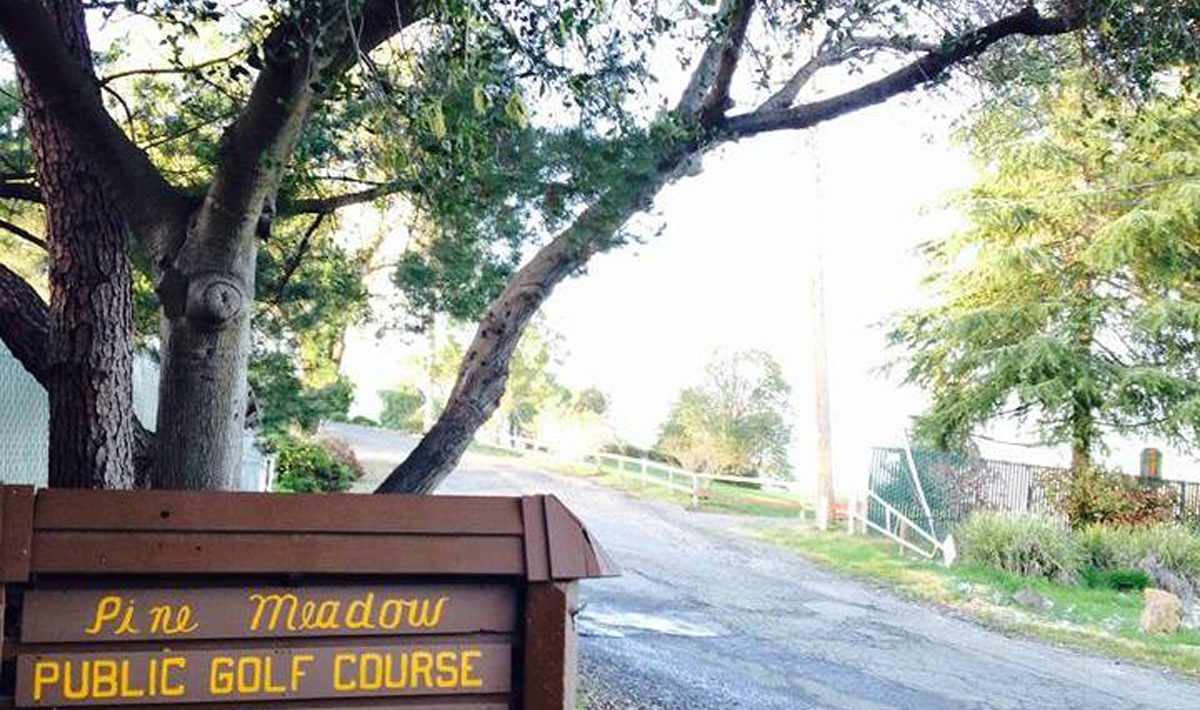MARTINEZ, Calif. – After what can only be described as high drama, the Martinez City Council approved a series of resolutions to allow a new city park at Traditions at the Meadow, a 65-home development on the site of the former Pine Meadow Golf Course to proceed.
According to remarks by City Attorney Veronica Nebb, the Council approved the development and resolved to go ahead with approval of only necessary park site improvements at a cost of about $90,100, but will have until December 31, 2019, to do more careful planning for park improvements, and to work on the financing.
A legal settlement that ended more than five years of civic acrimony over the project called for park plans to be fast-tracked. Public meetings were held in quick succession within a month. There was also a practical reason for haste. The developer has scheduled preliminary grading to be done before the rainy season.
Former golf course property owner Christine Dean lives next to the development site and has spent 10 years trying to resolve issues with the property. She had already removed the contents of an old clubhouse to a huge tent on her property, as trees were removed and grading began.
September 18, was the deadline for the Council to pass resolutions confirming the agreement, and when it appeared that might not happen, developer David Sanson of DeNova Homes, Inc. made it clear that the alternative would be another court battle.
Even so, city staff and the Parks, Recreation, Marina and Cultural Commission (PRMCC) advised that the council take more time to make final decisions based on firmer numbers for improvement and maintenance costs and to secure financing for them.
“We need a little more time to determine the costs. We need to be careful,” Christina Ratcliffe, community and economic development director commented. “The whole timeline was very fast.”
City staff and parties to the agreement envisioned the use of a Mello-Roos type district tax, but it became obvious that the details of that were not settled.
The Council admitted they had some of the same financial concerns. A barebones park plan appeared to cost more than the $1 million to be provided by the developer. (DeNova also gave the parkland to the city as part of the settlement.)
The most vocal opposition to going ahead without more financial certainty came from Councilmember Lara DeLaney. She said she just learned that about $400,000 in developer fees had been waived. “I don’t want to put the city in financial jeopardy,” she said.
Mayor Rob Schroder said he was undecided when he arrived, but he trusted David Sanson and the business has a good reputation. “We can work together and make all of this work,” he remarked.
After hearing the information given at the meeting, Councilwoman Debbie McKillop agreed. “Glad we have some closure in the Pine Meadow saga,” she commented.
Vice Mayor Noralea Gipner felt the same way. “When we signed the deal (settlement), I knew it was going to be fast.”
Councilman Mark Ross said he too voted for the deal. He indicated the prospect of renewed legal battles, versus the peace that came to the community with the settlement was valuable. He seemed pretty sure the city would figure out how to handle the maintenance costs.
“It’s like ordering a birthday cake and saying the candles are too expensive, and what are we going to do about the wax?” he said. “Our fiduciary responsibility is to do the right thing.”
City Attorney Veronica Nebb discerned that the council majority was about to go ahead, and suggested a 10-minute break to work out the details. The use of Mello-Roos-type infrastructure financing requires the developer’s cooperation and agreement. Fortunately, James Hamill, of the Statewide Community Infrastructure Program (SCIP) was there. SCIP financing is what the city plans to use, with a maximum annual cost of $1,975 to new home purchasers in the project.
Hamill, all of the council members, planners and attorneys met in the hall. The result was a unanimous “yes” vote on a series of resolutions that confirmed the legal settlement between DeNova Homes, Inc., the City of Martinez, and several grassroots organizations/parties that opposed the original development plans.
The resolutions officially rezoned the property to allow development, amended the city’s General Plan to be consistent with that, clarified language in Measure I and addressed other details.
Measure I was essentially an initiative approved by the voters, giving the public the right to vote on plans for the development of property zoned as open space, or basically requiring a zoning change to allow development.
There were several lawsuits surrounding the city’s previous approval of nearly 100 homes on the golf course property, and the Measure I initiative was an outgrowth of that.
The California Statewide Communities Development Authority (CSCDA) was created to provide California’s local governments with a tool for the financing of community-based public benefit projects. SCIP is an element of that organization.





